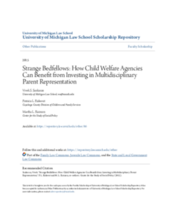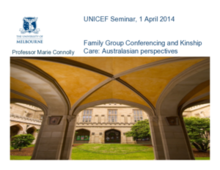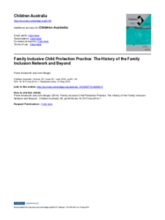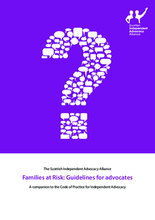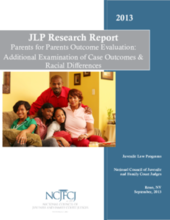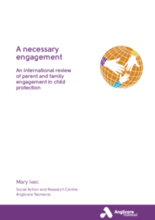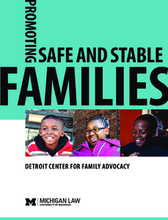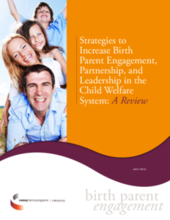This section highlights resources focused on the participation of parents and caregivers in decisions about children's care, including decisions about their own children and their placement in alternative care, as well as advocacy efforts to reform systems of care and protection for children.
Displaying 81 - 90 of 98
This article highlights emerging parent representation models that expedite the safe reunification of children already in foster care.
This article discusses the challenges in protecting Guatemalan children and their families from involuntary separation and presents the process, results and implications of a pilot training in which Guatemalan participants from government and civil society explored the efficacy and feasibility of the FGC model in their country.
This webinar presentation by Professor Marie Connolly of the University of Melbourne introduces the history and background of Family Group Conference (FGC) in New Zealand and Australia and discusses the influence of FGC on the development of formal or statutory kinship care in the region.
This article records briefly the history of the Family Inclusion Network as an organisation that promotes family inclusive child protection practice.
This document has been produced to provide guidance for advocacy organisations and advocates delivering independent advocacy to families at risk.
This evaluation sought to explore the differences in case outcomes by program participation and racial groups.
This report provides a review of international and national models of engagement, support and advocacy for parents who have contact with child protection systems. How statutory child protection systems engage with parents ultimately affects the outcomes for children, including safety, permanency and wellbeing. While social work practices that emphasise people’s self-determination and strengths are recognised as fundamental to eliciting change in parents when care standards have faltered, there is widespread acknowledgment of the struggle child protection authorities have to meaningfully engage parents and families.
This report presents data from a three-year pilot of a program that set out to prevent removals and expedite permanency by providing multidisciplinary services to at-risk families in Detroit, Michigan, USA.
This book focuses on the lives of six mothers who had been pariahs and then became partners with child welfare commissioners, social workers, lawyers, foundation officers, and child welfare agency executives. It recounts how their courage and resilience brought about the most significant changes in the history of New York’s child welfare system.
As an outgrowth of Casey’s ongoing work with birth parents, Research Services and Technical Assistance Unit collaborated to review strategies and programs that increase birth parent engagement with child welfare services and that develop effective child welfare partnerships with birth parents as mentors, leaders and advisers.

